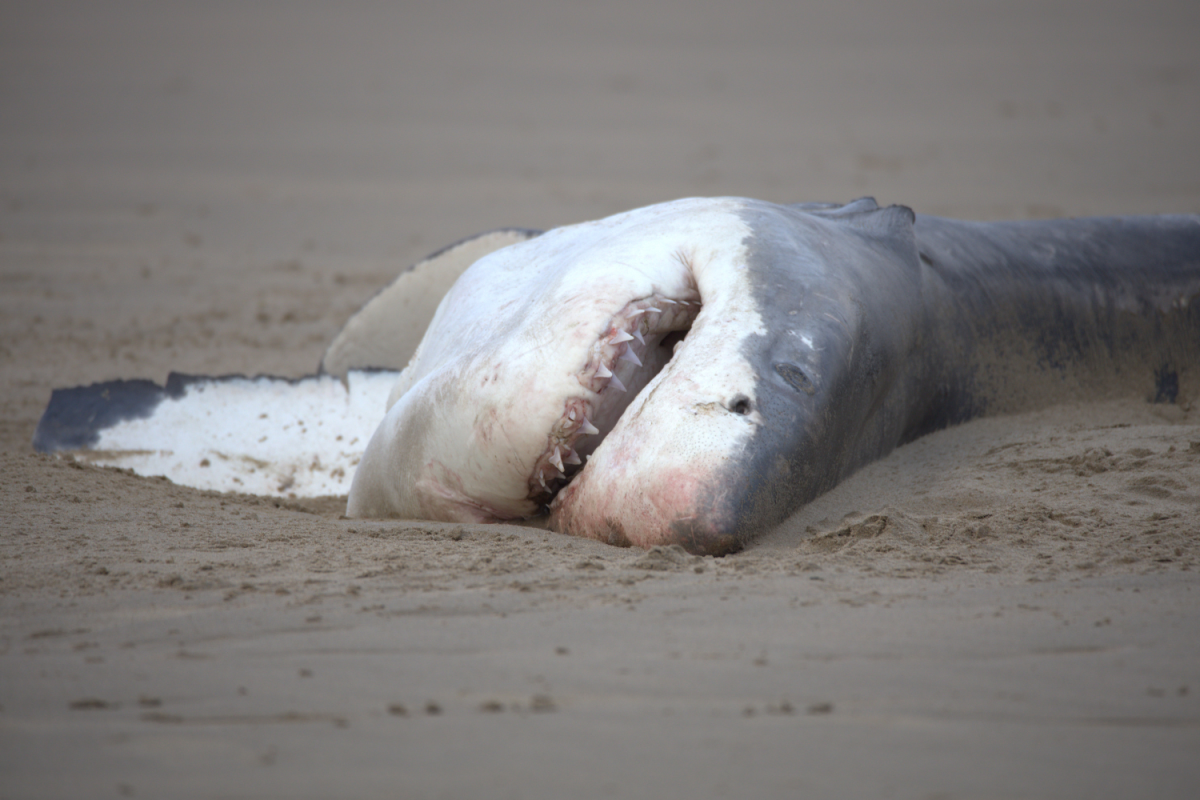An orca has been filmed hunting a great white shark all by itself, later carrying its liver in its mouth.
In newly published footage, an orca has been observed taking a great white shark down all by itself in just two minutes. Insights into the astonishing find have been published in the African Journal of Marine Science.
A single pair of orcas was first observed hunting great white sharks off the coast of the False Bay area of the Western Cape of South Africa in 2017. The pair, named Port and Starboard, became notorious for their gruesome attacks on sharks, which often involved ripping their bodies apart to get to their liver.
Since then, Alison Towner, a shark researcher at Rhodes University who led the research team in this study, has been looking for more insights into this bizarre behavior. She described the encounter as “astonishing.”
Orcas are highly intelligent and social animals, usually using complex group tactics to take down prey. In groups, they are capable of targeting large animals like seals, sea lions and even other whale species.
Christiaan Stopforth, Drone Fanatics SA
Until now, it was assumed that the pair of orcas worked together to take the huge predators down. But this footage shows Starboard acting alone.
“Killer whales are known for hunting large predators, including sharks, but it’s typically a group effort. What caught us off guard was how quick and skillful Starboard’s strategy was. The white shark, in this case, was a juvenile, less than 2.5 meters, making it likely easier to hunt solo compared to a larger one, which can reach over 6 meters and 2.5 tonnes,” Towner told Newsweek.
“Starboard was observed preying on an 8.2-foot juvenile white shark, later carrying the shark’s liver in its mouth past a boat,” Towner said in a summary of the findings, describing the hunt.
“This sighting revealed evidence of solitary hunting by at least one killer whale, challenging conventional cooperative hunting behaviors known in the region. These are groundbreaking insights into the predatory behavior of this species, and our findings significantly contribute to the global understanding of killer whale predation dynamics, enhancing knowledge of marine ecosystems and predator-prey relationships.”
During this time, Starboard killed at least two great white sharks. Although scientists only observed one being hunted, a second 11-foot shark carcass later washed ashore.
“These shark predation behaviors were initially recorded near Cape Town and Gansbaai in 2015 and then 2017, first on sevengill and then white sharks. Fast forward to 2024, we’re seeing more regular killer whale predations on sharks, moving further east along the coastline, particularly in areas like Mossel Bay,” Towner told Newsweek.
Esther Jacobs, from the marine conservation initiative Keep Fin Alive, was aboard the boat while Starboard carried out his lone attack.
“Upon reaching Mossel Bay’s Seal Island, the scent of shark liver oil and a noticeable slick indicated a recent kill. Tracking Port and Starboard near the island, they remained separated,” Jacobs said.
“Witnessing a white shark’s fin break the surface initially sparked excitement, but that turned to a somber realization as Starboard swiftly approached. The moment Starboard rapidly preyed on my favorite shark species was both devastating and intensely powerful.”

Christiaan Stopforth, Drone Fanatics SA
The predation of orcas on great white sharks was especially unusual when it first came to light, as they are both apex predators. Although orca are notorious predators, these gruesome attacks on sharks had never been observed before 2017.
This area of South Africa was once abundant with great white sharks. But in recent years, scientists have observed a drastic decrease in their numbers. Some believe this is down to the orcas’ presence and taste for their liver.
Towner urges the need for greater conservation efforts in the midst of this bizarre hunting behavior.
“Killer whales naturally prey on marine predators, but with numerous human-made pressures on our oceans, better management is crucial,” Towner said. In South Africa, this behavior puts significant pressure on white sharks, potentially pushing them to a tipping point they don’t need.”
Do you have a tip on a science story that Newsweek should be covering? Do you have a question about orcas? Let us know via [email protected].
Uncommon Knowledge
Newsweek is committed to challenging conventional wisdom and finding connections in the search for common ground.
Newsweek is committed to challenging conventional wisdom and finding connections in the search for common ground.


